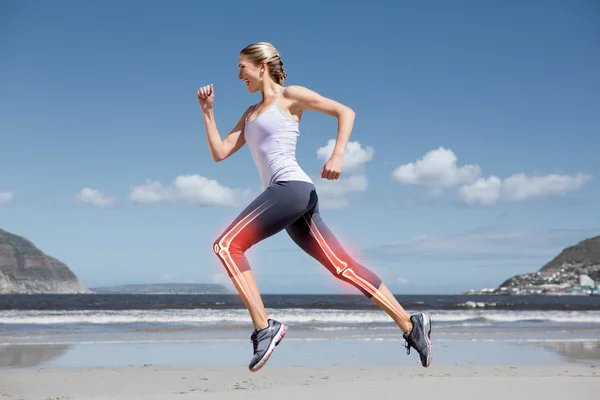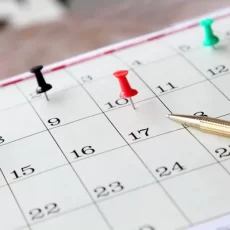I live in Mumbai, which has a tropical climate and you do not experience extreme weather here. Hence, it works well for not-so-young people like me or old people like my mother. This January, I visited my mother in Greater Noida to experience some severe cold there. It was in a long time since I visited North India during the extreme winter month. During my stay, I noticed that my mother sat in Sun for long hours, from the time Sun rose till it set. She kept moving her chair from one corner to another chasing Sunrays. She is a chronic knee pain patient. When I asked her, she replied, “Sun is a good source of vitamin D which helps me in reducing my knee pain.” In addition, I noticed many other changes in her life, she felt nice, and it uplifted her mood.

Now, I became curious to dig deeper, into how Sunshine helps in providing strength to your bones and many other things.
Sunlight is essential for human health and well-being. The health benefits of sunlight include generating the production of vitamin D, supporting bone health, lowering blood pressure, preventing disease, and promoting good mental health.
Five Benefits of Sun Exposure
- The sun’s light kills bacteria. Surprisingly enough, sunlight does kill bacteria!
- Sunlight reduces your blood pressure.
- Sun exposure reduces cancer risk.
- The sun strengthens your bones.
- Sunlight improves your sleep quality.
5 Ways the Sun Impacts Your Mental and Physical Health:
- Increased Vitamin D. Vitamin D has some important functions in the body.
- Improved Mood.
- Higher Quality Sleep.
- Stronger Bones.
- Lower Blood Pressure.
Now, what does Vitamin D, or Sunshine Vitamin (as it is popularly known) does to our body?
Vitamin D helps regulate the amount of calcium and phosphate in the body. These nutrients are needed to keep bones, teeth, and muscles healthy. A lack of vitamin D can lead to bone deformities such as rickets in children, and bone pain caused by a condition called osteomalacia in adults.
How does Sunshine complement Vitamin D in our body?

Vitamin D is one of the most essential nutrients that our body needs to build strong bones, teeth, and muscles. The primary source of Vitamin D is sunshine hence it is also known as the Sunshine vitamin. According to Luke Coutinho, a Holistic Nutritionist specializing in the field of Integrative and lifestyle medicine, “Sunlight does not provide Vitamin D.” The Sun’s ultraviolent rays trigger vitamin D synthesis in the skin, and the liver and kidneys convert it into biologically active forms that the body can use to promote bone health, immunity, and hormonal health and much more. Coutino emphasizes that one needs direct exposure to the skin to gain all the benefits of Vitamin D. Early morning Sun or sun that is not burning the skin is recommended for a minimum of 15 mins to one hour to gain extraordinary benefits. Here, I corrected my mother by cutting her duration to one hour every day, though she protested, I stuck to my guns.
It is important to know why Vitamin D is important for the body. It is a fat-soluble vitamin that has long been known to help the body absorb and retain calcium and phosphorus; both are critical for building bone. Also, laboratory studies show that vitamin D can reduce cancer cell growth, help control infections and reduce inflammation.
Knowing the functions of vitamin D is equally important.
Together with calcium, vitamin D also helps protect older adults from osteoporosis. Vitamin D has other roles in the body, including the reduction of inflammation as well as modulation of such processes as cell growth, neuromuscular and immune function, and glucose metabolism.

What happens to your body when you need vitamin D?
Vitamin D deficiency can lead to a loss of bone density, which can contribute to osteoporosis and fractures (broken bones). Severe vitamin D deficiency can also lead to other diseases. In children, it can cause rickets. Rickets is a rare disease that causes the bones to become soft and bend.
What are the major functions of vitamin D?
Together with calcium, vitamin D also helps protect older adults from osteoporosis. Vitamin D has other roles in the body, including the reduction of inflammation as well as modulation of such processes as cell growth, neuromuscular and immune function, and glucose metabolism
What happens to your body when you need vitamin D?
What are the symptoms which indicate that Vitamin D is low:
“Most patients with vitamin D deficiency are asymptomatic, however, if you’re exhausted, your bones hurt, you have muscle weakness or mood changes, that’s an indication that something may be abnormal with your body,” says Dr. Lacey.
Symptoms of vitamin D deficiency may include:
- Fatigue
- Not sleeping well
- Bone pain or achiness
- Depression or feelings of sadness
- Hair loss
- Muscle weakness
- Loss of appetite
- Getting sick more easily
- Pale skin

Besides, Vitamin D deficiency can lead to a loss of bone density, which can contribute to osteoporosis and fractures (broken bones). Severe vitamin D deficiency can also lead to other diseases. In children, it can cause rickets. Rickets is a rare disease that causes the bones to become soft and bend.
This way we see that it is a fat-soluble vitamin that has long been known to help the body absorb and retain calcium and phosphorus; both are critical for building bone. Also, laboratory studies show that vitamin D can reduce cancer cell growth, help control infections and reduce inflammation.
If we sum it up, it is the most versatile vitamin which works wonders for our bodies.
So, go for it, be HappyHo.

